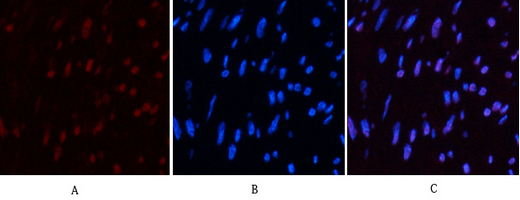
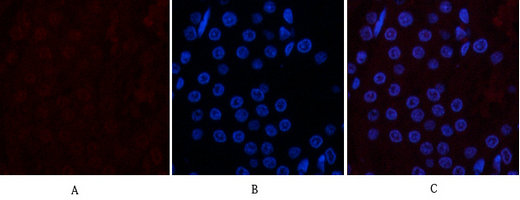
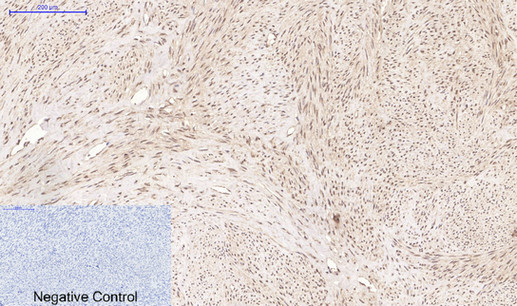
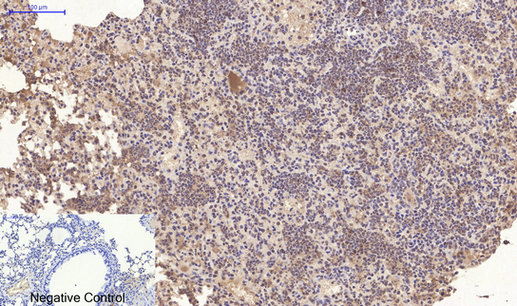
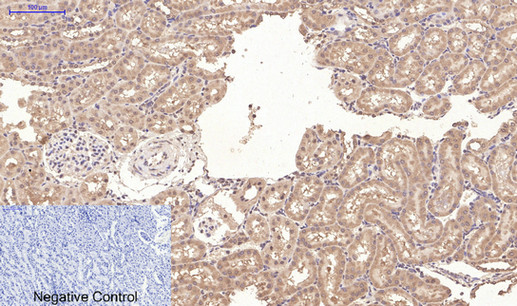
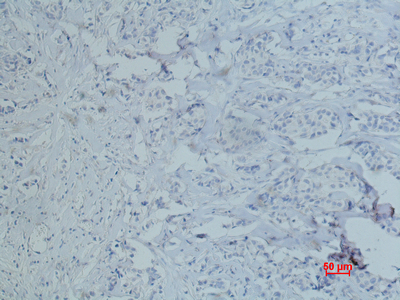
| WB | 咨询技术 | Human,Mouse,Rat |
| IF | 咨询技术 | Human,Mouse,Rat |
| IHC | 1/50-1/100 | Human,Mouse,Rat |
| ICC | 技术咨询 | Human,Mouse,Rat |
| FCM | 咨询技术 | Human,Mouse,Rat |
| Elisa | 咨询技术 | Human,Mouse,Rat |
| Aliases | MME; EPN; Neprilysin; Atriopeptidase; Common acute lymphocytic leukemia antigen; CALLA; Enkephalinase; Neutral endopeptidase 24.11; NEP; Neutral endopeptidase; Skin fibroblast elastase; SFE; CD10 |
| Entrez GeneID | 4311 |
| clone | 6F7 |
| Host/Isotype | Mouse IgG1 |
| Antibody Type | Primary antibody |
| Storage | Store at 4°C short term. Aliquot and store at -20°C long term. Avoid freeze/thaw cycles. |
| Species Reactivity | Human,Mouse,Rat |
| Immunogen | Synthetic peptide conjugated to KLH. |
| Formulation | Purified antibody in PBS with 0.05% sodium azide,0.5%BSA and 50% glycerol. |
+ +
以下是关于CD10抗体的3篇代表性文献及其摘要内容的简要概括:
1. **文献名称**:*CD10/neutral endopeptidase 24.11 in acute lymphoblastic leukemia: a review*
**作者**:Sato et al.
**摘要**:该综述总结了CD10在急性淋巴细胞白血病(ALL)中的诊断价值,强调CD10抗体作为B细胞分化标志物的作用,及其在白血病亚型分类中的应用。
2. **文献名称**:*CD10 expression in stromal cells of solid tumors: a potential therapeutic target*
**作者**:López-Guerrero et al.
**摘要**:研究探讨了CD10在肿瘤相关成纤维细胞中的表达,利用CD10抗体揭示其与肿瘤微环境调控的关系,提示其可能成为癌症治疗的生物标志物。
3. **文献名称**:*CD10 is a marker for breast carcinoma progression*
**作者**:Mikhitarian et al.
**摘要**:通过免疫组化分析,发现CD10在乳腺癌侵袭性亚型中高表达,CD10抗体检测可辅助评估肿瘤转移潜能及患者预后。
---
注:以上为模拟简化版文献信息,实际引用需核实具体文献来源及原文内容。若需正式引用,建议通过PubMed或学术数据库检索关键词(如“CD10 antibody”、“clinical applications”)获取准确文献。
CD10 antibody targets the CD10 antigen, a cell surface metalloprotease also known as neprilysin or neutral endopeptidase (NEP). First identified as a marker for common acute lymphoblastic leukemia antigen (CALLA), CD10 is a 90-110 kDa type II transmembrane glycoprotein expressed in various tissues, including lymphoid progenitors, germinal center B cells, granulocytes, and epithelial cells. It regulates cellular signaling by cleaving peptide substrates such as enkephalins, atrial natriuretic peptide, and chemokines, modulating inflammation, pain response, and blood pressure.
In diagnostics, CD10 antibodies are widely used to classify hematologic malignancies (e.g., acute lymphoblastic leukemia, Burkitt lymphoma) and distinguish between tumor subtypes. Its expression in follicular lymphoma versus CD10-negative marginal zone lymphoma aids differential diagnosis. In solid tumors, CD10 expression correlates with tumor aggressiveness in certain cancers (e.g., breast, renal cell carcinoma), though its functional role remains debated.
Therapeutically, CD10's role in peptide metabolism has spurred interest in targeting it for conditions like heart failure (via NEP inhibition) or cancer, though clinical applications are still exploratory. Research also explores CD10's involvement in stem cell regulation and tissue regeneration. Despite its established diagnostic utility, ongoing studies aim to clarify its dual roles in tumor suppression and progression across different contexts.
×